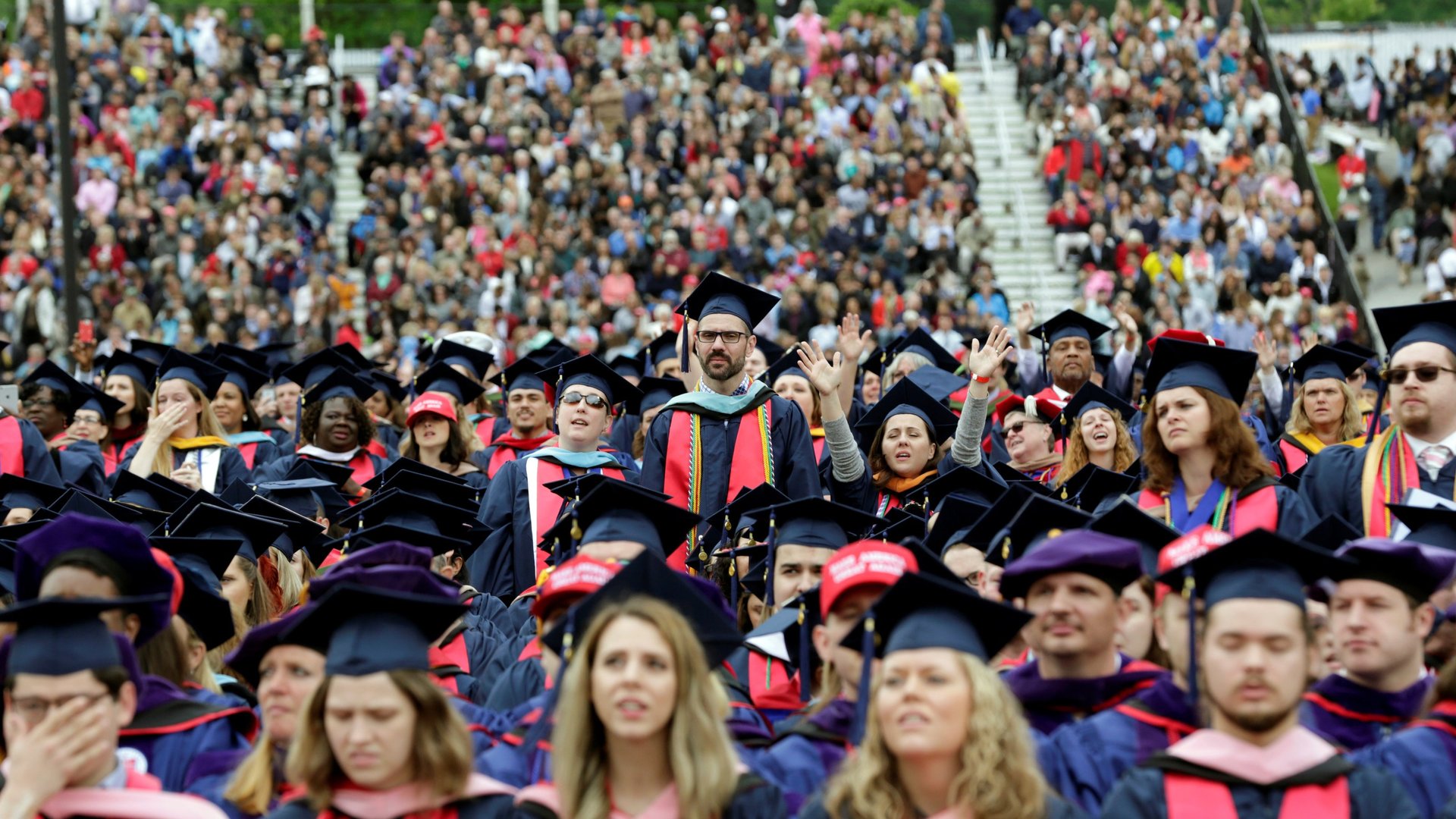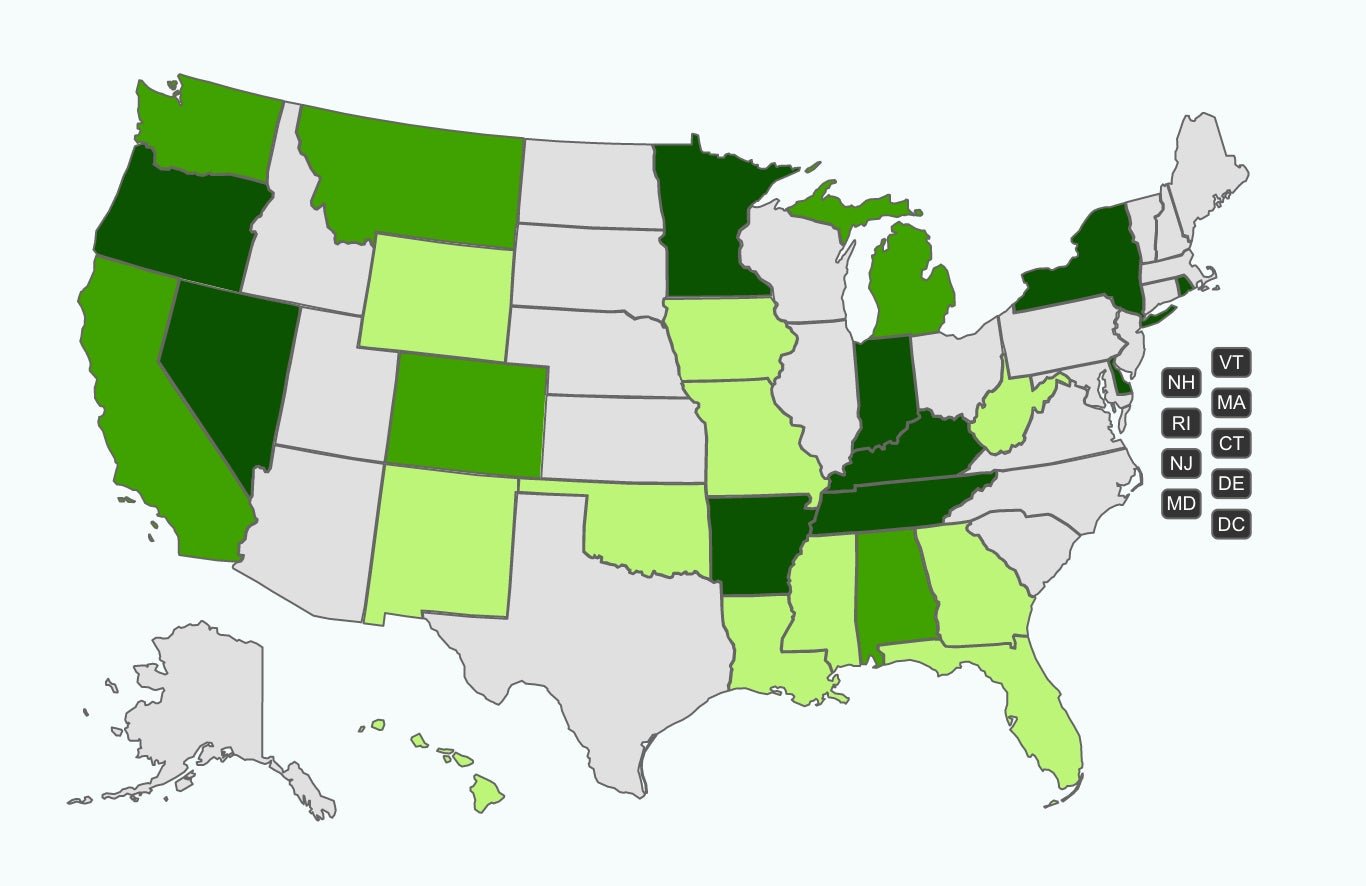How to go to college for free in America
Bachelor’s degrees from some universities cost more than $250,000 in their entirety. College education in America is so costly that students have begun putting their grandparents in debt. For many people, it makes sense to consider alternative routes in life. (See: Our guide to not going to college.)


Bachelor’s degrees from some universities cost more than $250,000 in their entirety. College education in America is so costly that students have begun putting their grandparents in debt. For many people, it makes sense to consider alternative routes in life. (See: Our guide to not going to college.)
Here’s the good news for those who are set on going to college. As fees go up, so do the number of ways that you can cheat the system and grab a degree for free—or as close to it as possible.
The public option
There are several European countries that offer free college to eligible students; nations like the Philippines are newly hopping on board as well. And while critics deemed it outlandish and impossible, Bernie Sanders’s infamous dream of free college in the US is actually coming into reality—little by little.
One of the most noticeable has been the state of New York, which this year announced a groundbreaking program: Students from a household that makes $100,000 or less (and who meet other stipulations, such as achieving a certain grade-point average in high school) will be able to attend any of the state’s public colleges, universities, or community colleges without paying for tuition. Nearly a million families in the state currently qualify for the program.
More than 20 other states have already put up some kind of free college-tuition structure, and other large states like California are now mulling it over. According to the Campaign for Free College Tuition, over half the country has enacted—or at least made steps toward—the idea; and you can check the particulars of each state on its website.

Look closer at some private schools
But state-run public schools are not the only option. The US actually has dozens of tuition-free schools—some of which are quite fiercely competitive.
Take the College of the Ozarks, for instance, a small Christian liberal arts college in Missouri, which is ranked in the top twenty in the Midwest and does not charge tuition for full-time students. (They are required, however, to work 15 hours a week at an on-campus work station.) It even offers a summer work program to cover room and board.
Deep Springs College, a nontraditional two-year school in rural California that only enrolls around 26 people at a time, gives each student a full scholarship of over $50,000 a year. Many of its alumni go on to pursue full degrees at schools like Harvard, Princeton, and Yale (at half the cost, given that they’ve already completed the first two years) and become prominent statesmen; yet students can also stop at a two-year associate’s degree (entirely for free).
Apply for all the free scholarships
Though they’re not blanketly tuition-free, don’t rule out Ivy League schools, whose financial aid programs are often generous enough to allow hundreds of students each year to attend without paying tuition. At Cornell and Harvard, for example, families with a combined income of less than $60,000 don’t have to pay a dollar for their child’s education. It’s a common misperception that the more elite a school is, the more unaffordable—when in fact the opposite is true. Selective schools tend to have sizable pools of money, which means they can actually offer more aid than mid-tier ones.
More generally, per Fastweb, an online scholarship-matching service, more than $2.9 billion in free college money goes unclaimed by students in the US—each and every year.
That’s because nearly half of all high-school students forget to fill out the Free Application for Federal Student Aid (FAFSA), which is the first step to finding out if a household qualifies for financial aid in the form of Pell Grants or state programs; in addition, students fail to spend time browsing the slew of corporate- or nonprofit-sponsored scholarship programs out there in the world.
If you don’t believe there’s a scholarship out there for you, here’s just a tiny sample of what’s available:
- The Rolex Scholarship. $25,000 for “underwater and other aquatic-related endeavors for a young person considering a career in an underwater-related discipline.”
- The National Potato Council Scholarship. $10,000 annually to a graduate student pursuing advanced study in the enhancement of the potato industry.
- The Sheep Heritage Foundation Memorial Scholarship. $3,000 from the American Sheep Industry Association for studies in “the advancement of the sheep industry.”
- The National Marbles Tournament Scholarship. $2,000. A marble competition. You get the idea.
Even longtime college skeptic Beyoncé is offering scholarships these days. Neglecting to look into scholarships is the equivalent of passing up free money—and when it comes to college, there’s no such thing as too much aid.